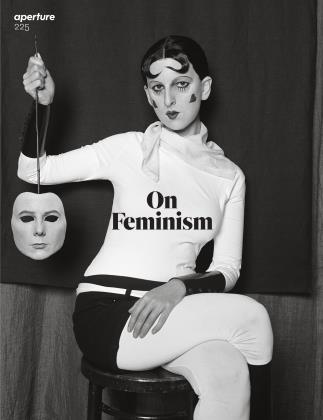Les Femmes de I’Avenir, 1900-1902
Object Lessons
They were the women of the future: the lawyers, doctors, and police officers. But, in these satirical postcards, produced in France at the turn of the twentieth century, their professions are solely masculine. At the time, the French language itself, which considers nouns to be either feminine or masculine, couldn’t conceive of a female mayor or second lieutenant, or any job in the public interest. (To this day, there is no feminine word for judge—or plumber.) And while these women might be emancipated through their imaginary métiers, their fashions tell a different story. If they’re not sexualized with bare arms and tight uniforms, they’re hutched up, neutralized, and swathed in big coats and top hats.
When such cards were in circulation, French feminists and antifeminists were embattled. Accusing working women of becoming “virile,” antifeminists portrayed the desire for equality as a threat to the social order, and a danger to the family. In the United States, women seeking the vote were envisioned as emasculating. “My wife’s joined the
Suffrage Movement, (I’ve suffered ever since!)” declared one colorful American postcard illustrating a “feminized” man cleaning the floor in a striped apron. Others imagined men cooking, surely an exotic sight, or resentfully looking after a baby.
The most radical women have always dared to break with convention, in language or comportment. Madeleine Pelletier, a French psychiatrist and social advocate in the early twentieth century, had no time for fancy dresses. Secretary of the organization Women’s Solidarity and the subject of photographic portraits in the 1910s, she wrote about feminist education, promoted genderless names for girls and boys, and kept her hair short. Pelletier refused clothes that objectified a woman’s body. “I do not understand why these ladies don’t see the vile servitude that lies in displaying their breasts,” she said. “I will show off mine when men adopt a special sort of trouser showing off their—.” Madeleine Pelletier wasn’t a femme de Favenir. She was ahead of her time.
The Editors
 View Full Issue
View Full Issue
More From This Issue
-
 Words
WordsModern Women
Winter 2016 By David Campany -
 Pictures
PicturesHannah Starkey
Winter 2016 By Sara Knelman -
 Editor's Note
Editor's NoteOn Feminism
Winter 2016 By The Editors -
 Words
WordsRenée Cox A Taste Of Power
Winter 2016 By Uri Mcmillan -
 Words
WordsOn Defiance
Winter 2016 By Eva Respini -
 Words
WordsThe Feminist Avant-Garde
Winter 2016 By Nancy Princenthal
Subscribers can unlock every article Aperture has ever published Subscribe Now
The Editors
-
 Editor's Note
Editor's NoteWestern Spaces
Spring 1985 By The Editors -
 Editor's Note
Editor's NoteLatin American Photography
Winter 1987 By The Editors -
 Editor's Note
Editor's NoteOn Location
Winter 1997 By The Editors -
 Editor's Note
Editor's NoteSounds
Fall 2016 By The Editors -
 Editor's Note
Editor's NoteOn Feminism
Winter 2016 By The Editors -
 Editor's Note
Editor's NoteThe 70th Anniversary Issue
FALL 2022 By The Editors
Object Lessons
-
 Object Lessons
Object LessonsMy Ring From Orlando, 1992
Summer 2019 -
 Object Lessons
Object LessonsMade In Latin America, 1981
Fall 2019 -
 Object Lessons
Object LessonsFreedom Rally, 1962
Winter 2019 -
 Object Lessons
Object LessonsAnnie Smith Peck’s Postcards, 1908
Spring 2016 By The Editors -
 Object Lessons
Object LessonsJonna Kina’s Foley Objects, 2013
Fall 2016 By The Editors -
 Object Lessons
Object Lessons?stereograph Of Sing Sing Prison, Ca. 1860s??
Spring 2018 By The Editors

